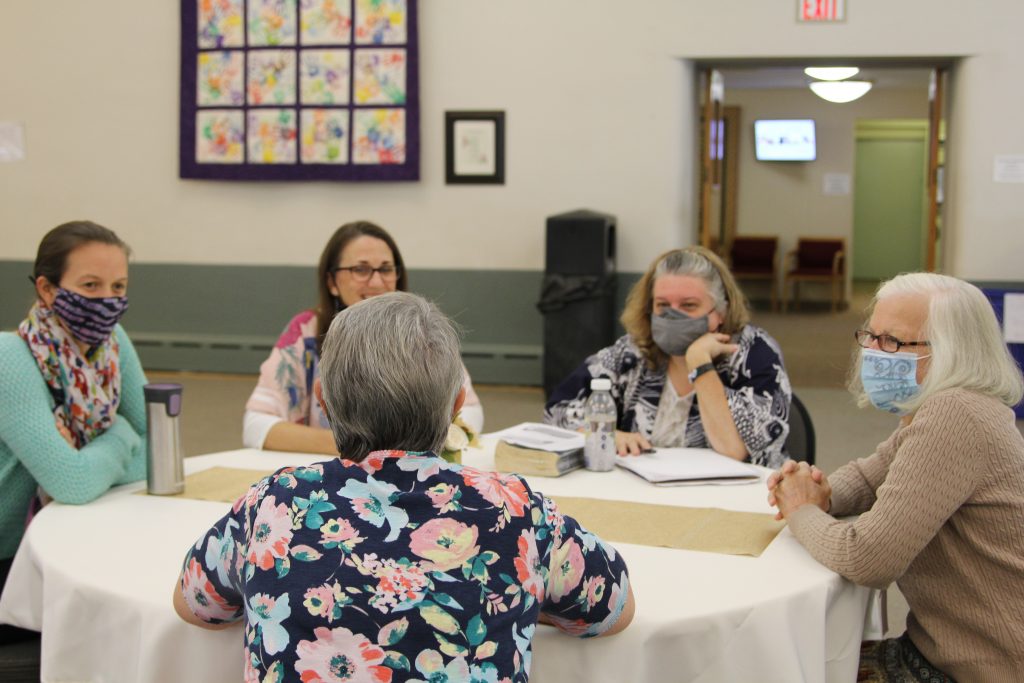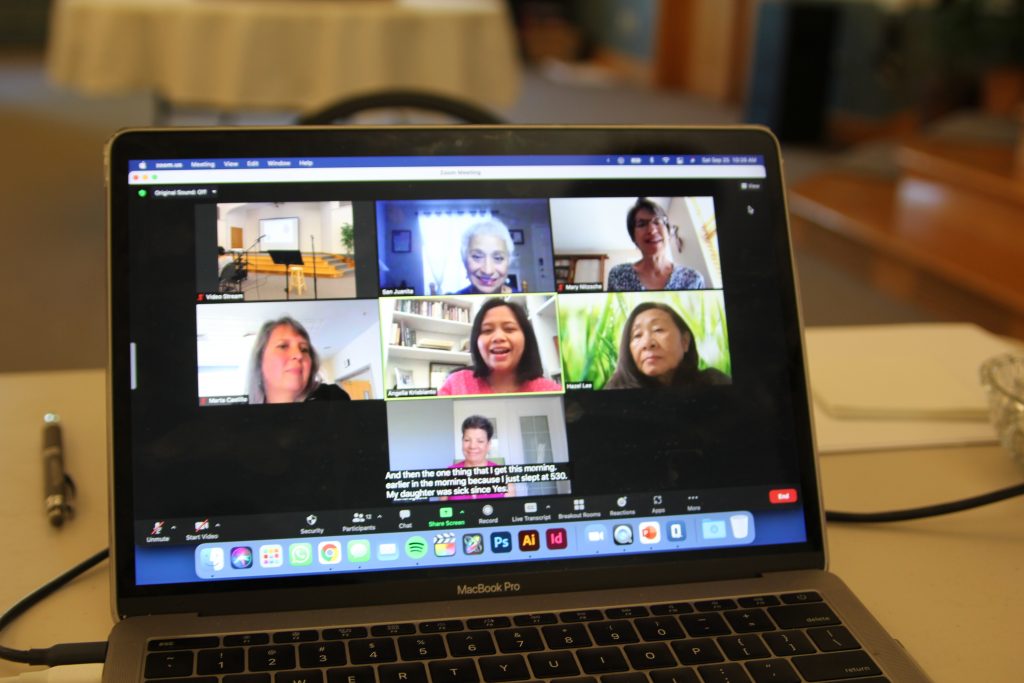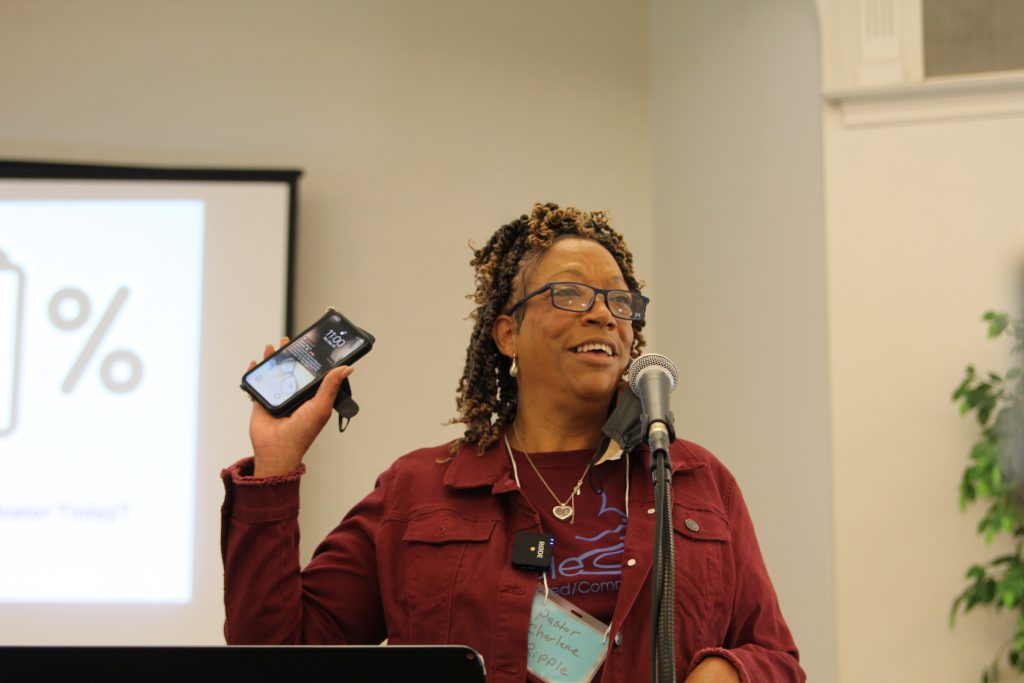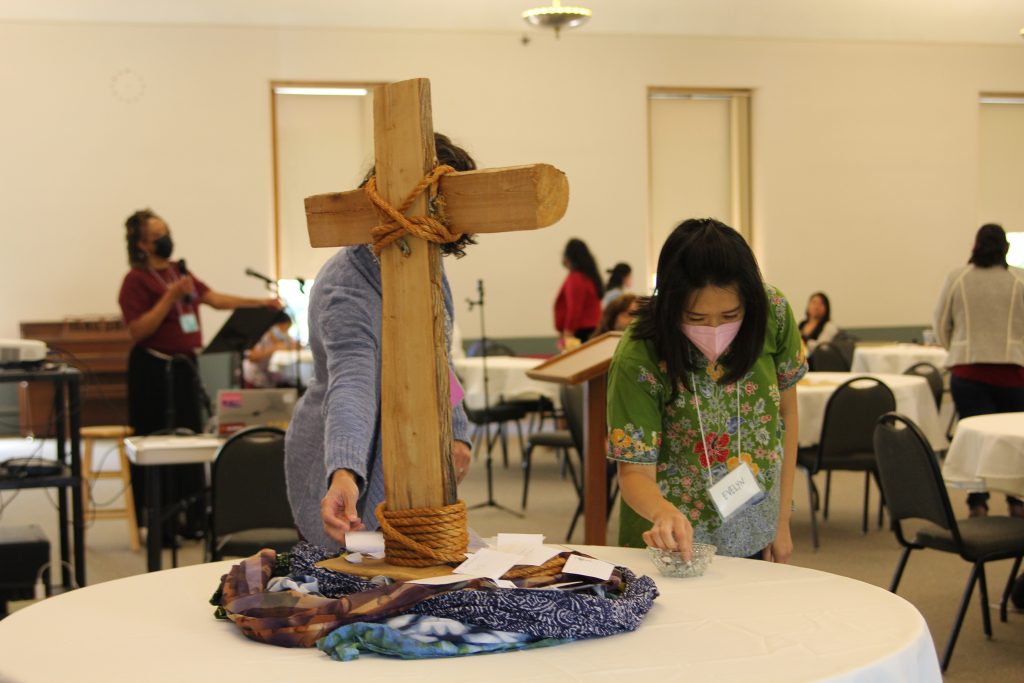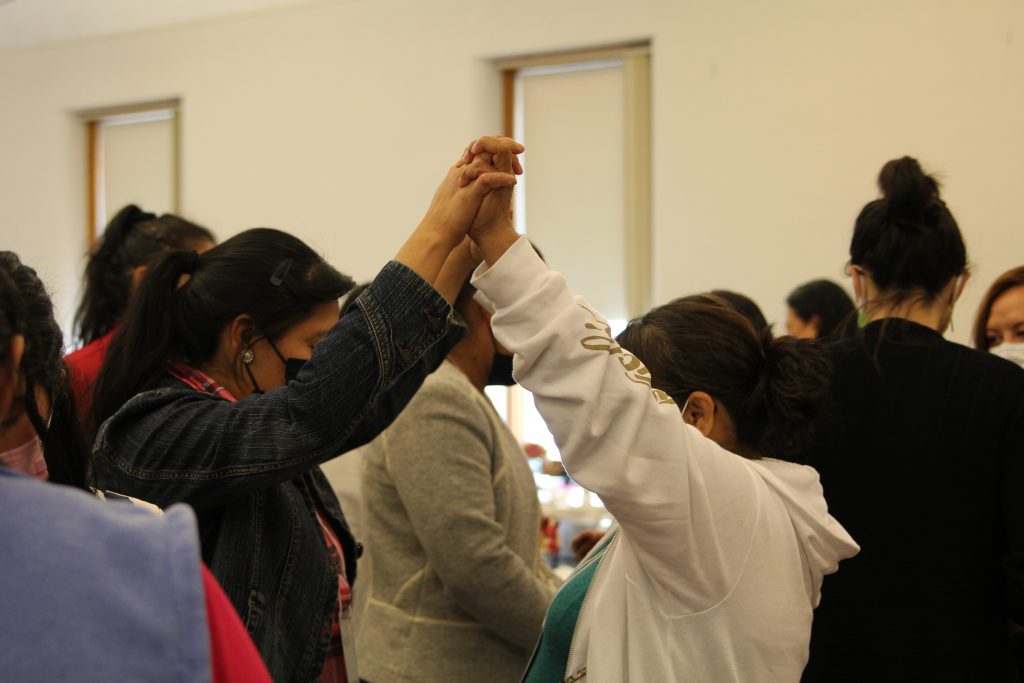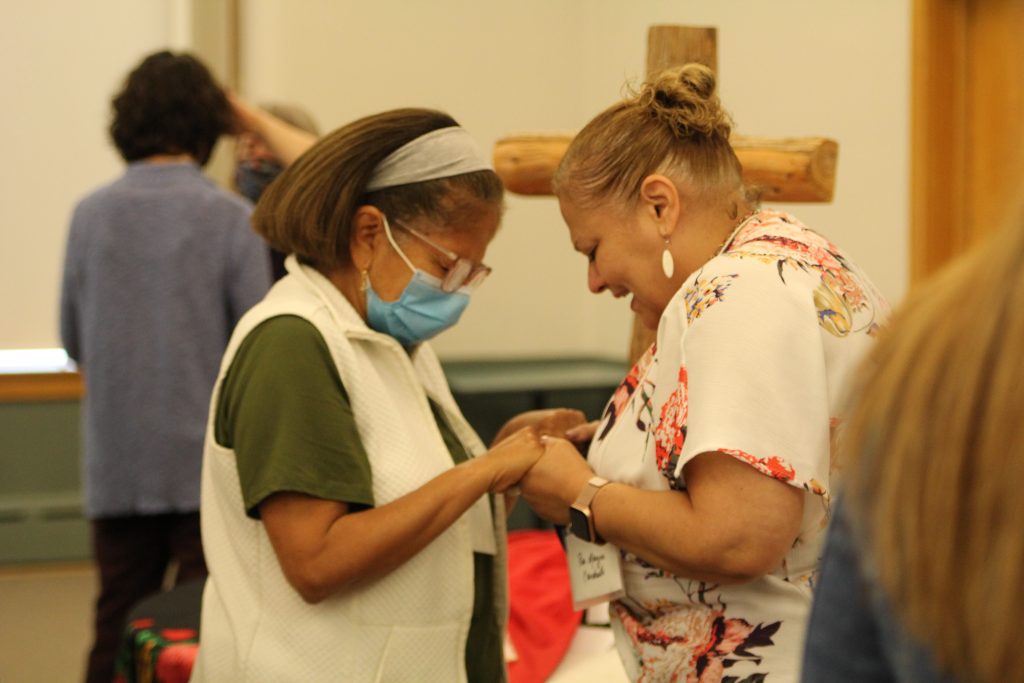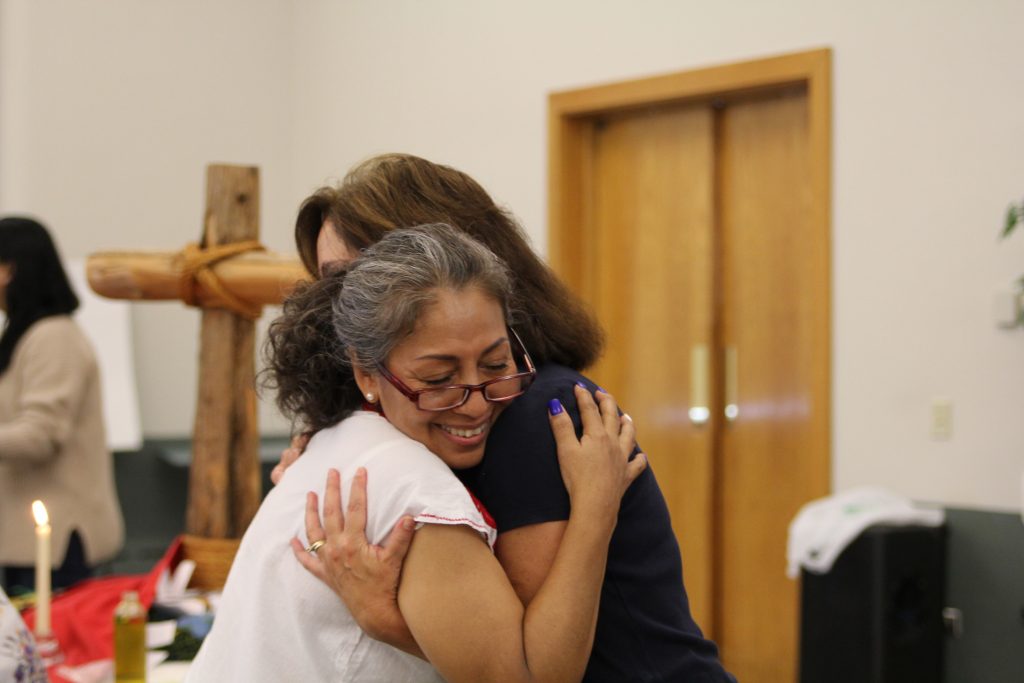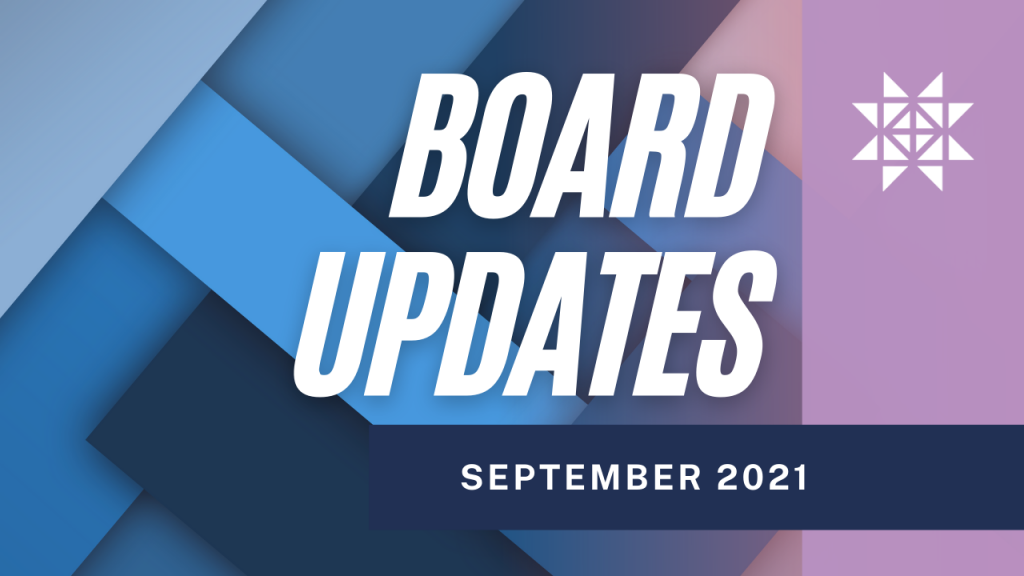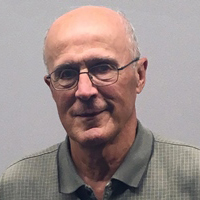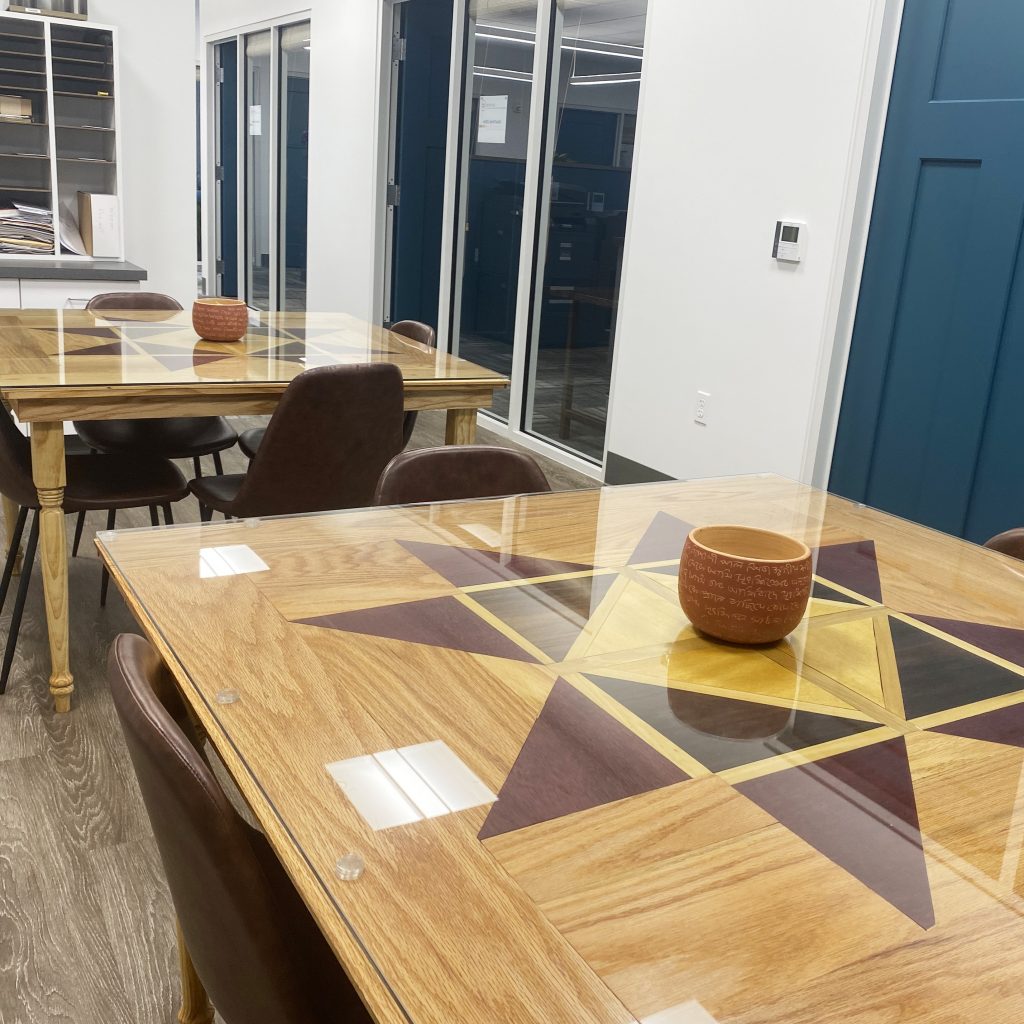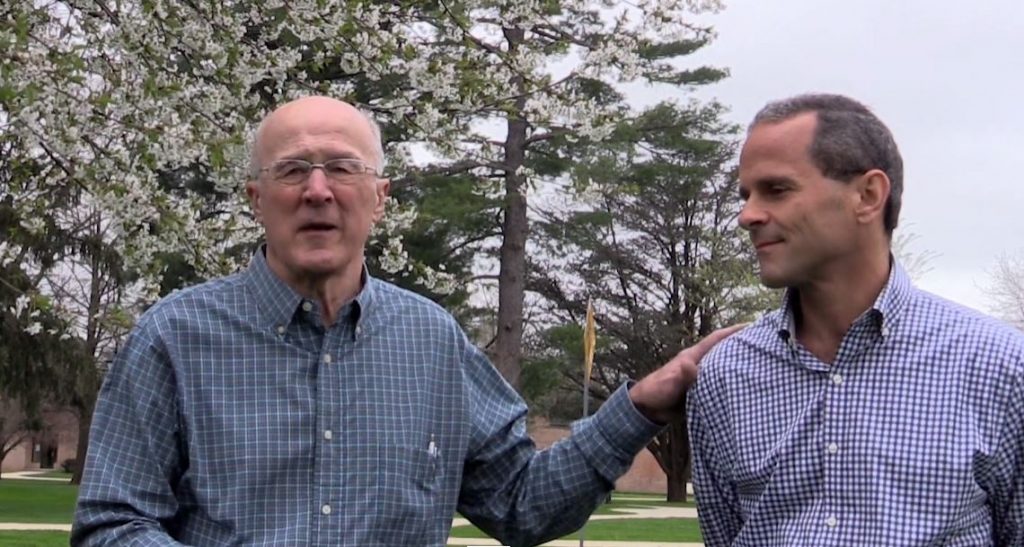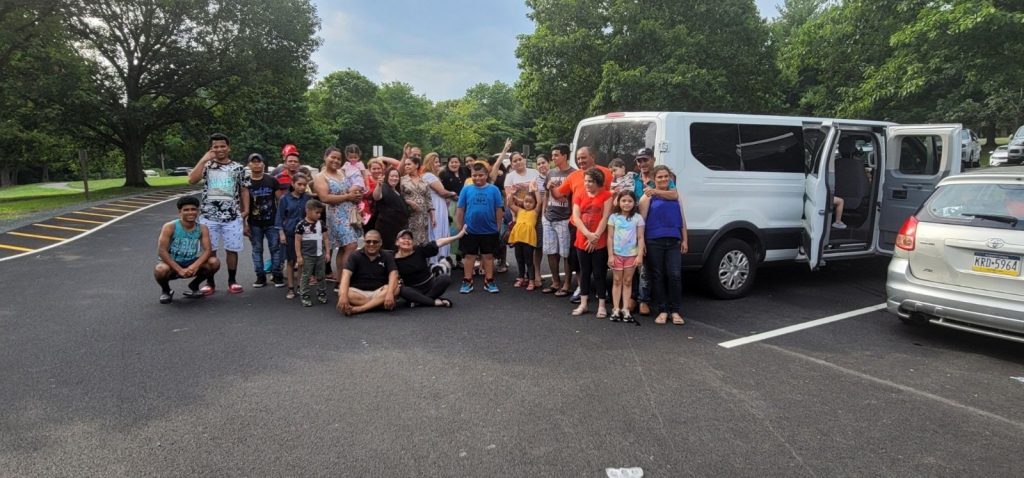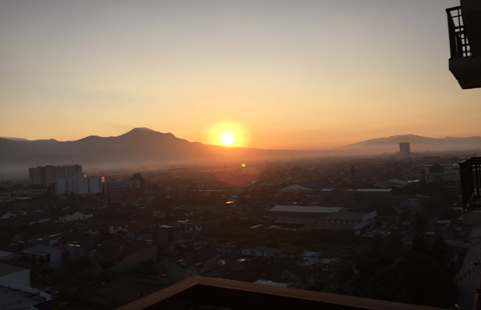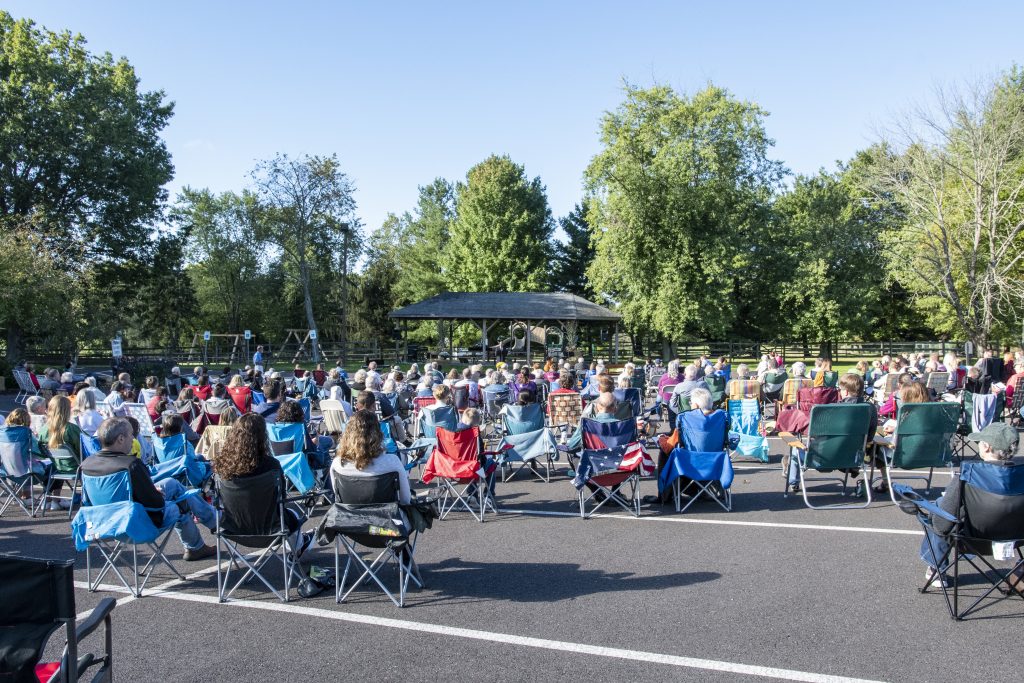
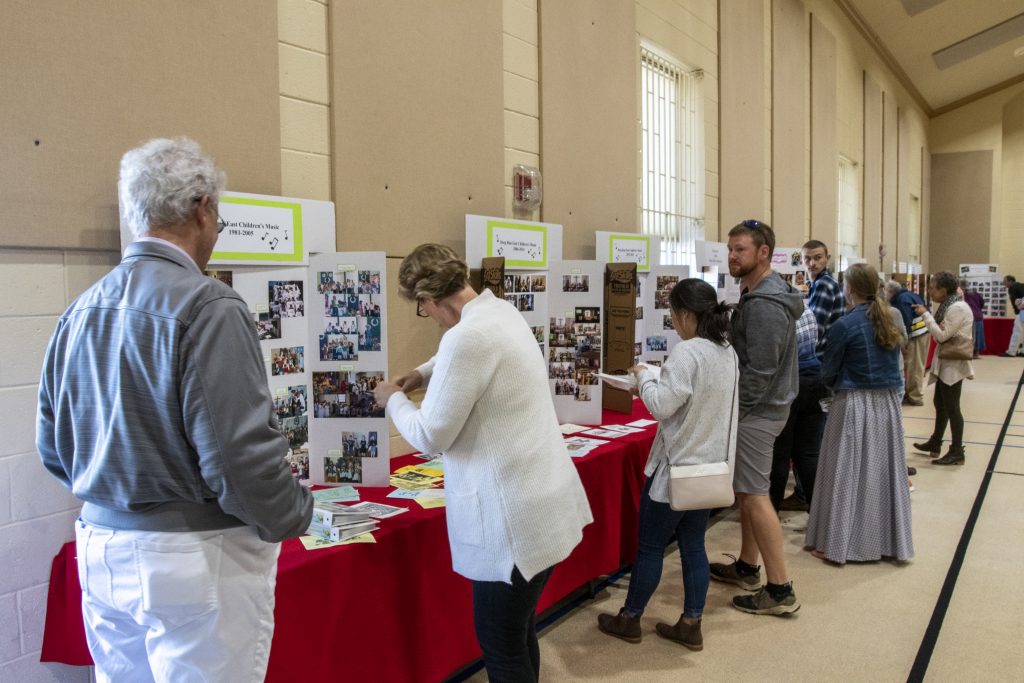
Deep Run East Mennonite Church (Perkasie, PA) celebrated their 275th anniversary on Sunday, September 26, 2021. Over 250 people were in attendance and enjoyed memories, photos, and stories, including those on display from past mission trips, local mission work, Vacation Bible School, Sunday School, youth activities, and more. A timeline shared what was happening in the life of Deep Run East, the local community, and world history during the last 275 years. The historical displays are on display for public viewing until October 10.
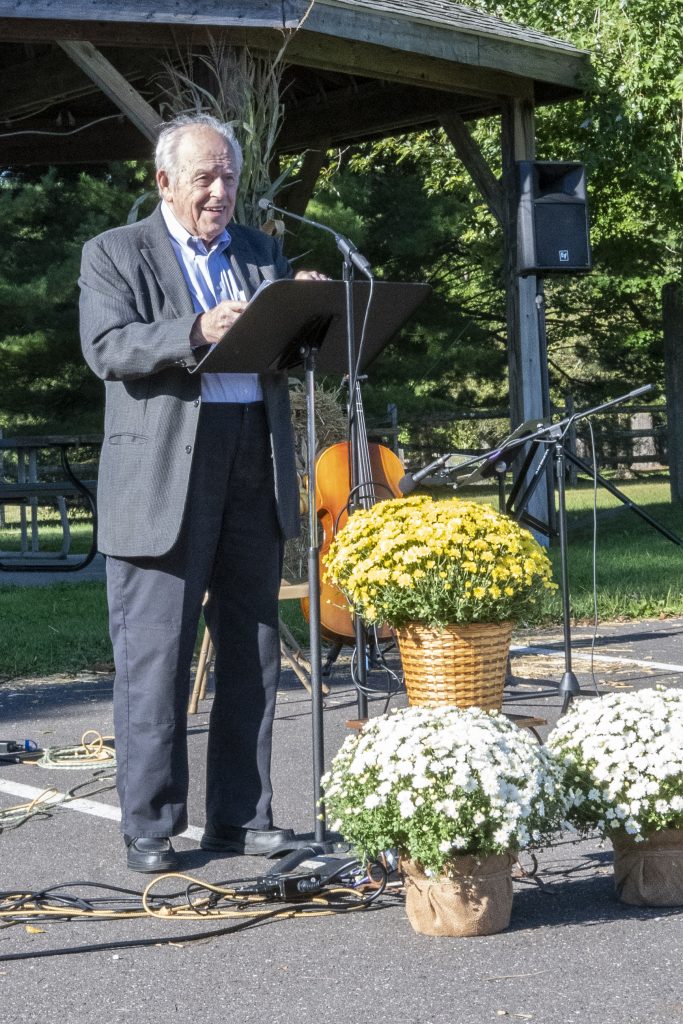
John L. Ruth preached at the Sunday worship service for the 275th anniversary celebration of Deep Run East congregation. His sermon was titled, “Looking Backward and Forward with Love,” based on Deuteronomy 7:6-9 and 1 John 4:7-19.


